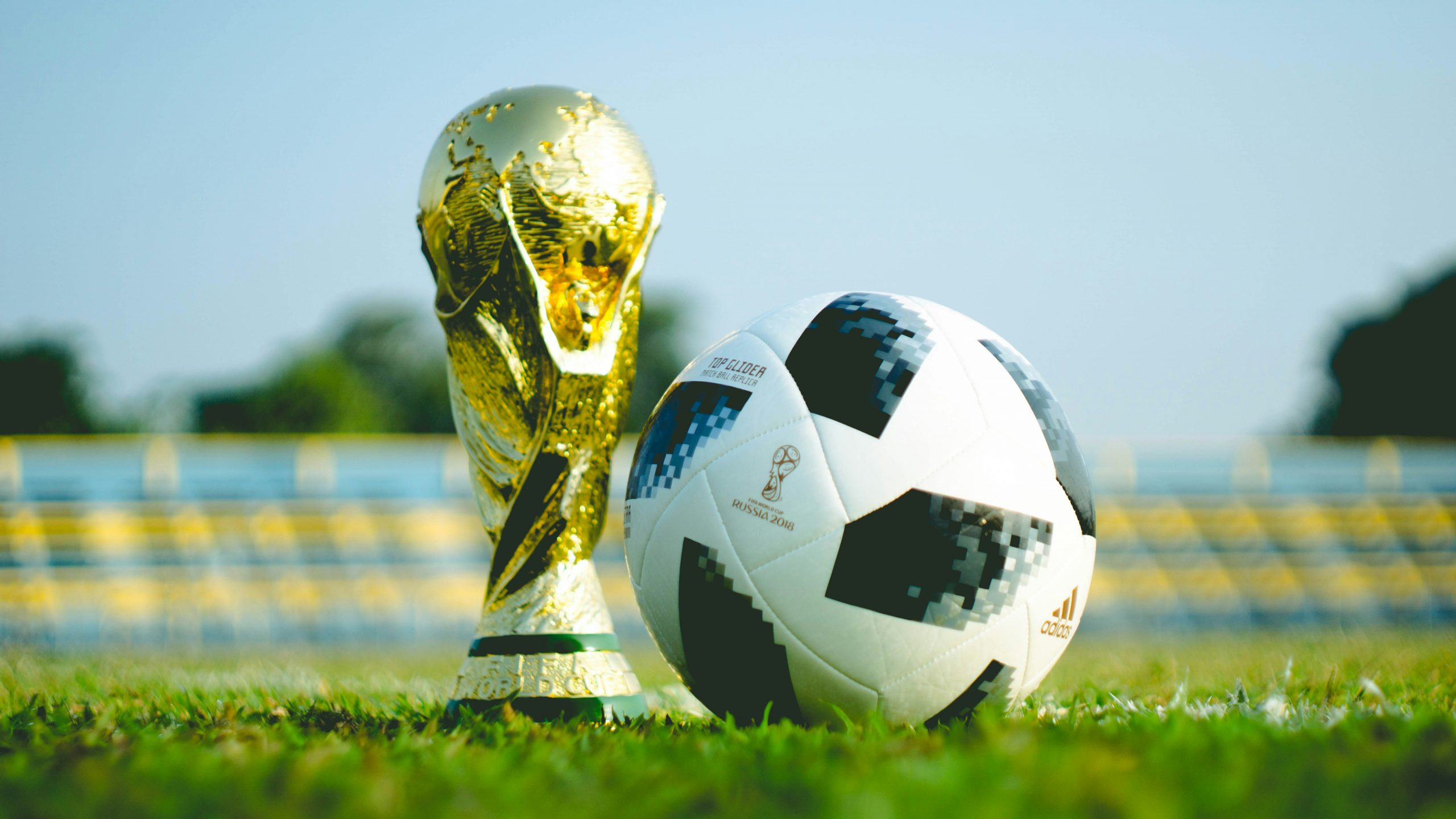
Diplomatic Goals or Fouls? – Football as a Field of International Relations
2024 is a year to excite all (European) football fans. After Germany hosted the World Cup in 2006, football is returning in a big way. In 2024, Germany will host the 17th European Championship, making it the focal point for four weeks, not just for Europe, but for many parts of the world. Whether the German football fairy tale will come true and the country will win the championship at home remains to be seen.
It is already evident that host countries of major sporting events have certain expectations. Financial aspects are less of a priority; instead, these events serve political goals, with sport diplomacy being the tool of choice.
What is Sport Diplomacy?
Countries that host major sporting events deliberately put themselves in the spotlight of the (global) public. Why? Because hosting generates massive attention. It is a stage with two sides of a coin (Mittag 2021: 3). Both the host country and the participating nations can use this stage to make political statements (Mittag 2021: 3). For example, during the 2021 European Championship, Ukraine displayed its national borders, including the annexed Crimea, on its jersey (Mittag 2021: 3). The captain of the German national team made a statement for openness, diversity, and tolerance by wearing a rainbow armband on the international field (Mittag 2021: 3; Catuogno 2021). The host country of the 2022 World Cup, Qatar, positioned itself as a strategic and reliable partner on the world stage even before the tournament began (Friebe 2023). The images created by such actions and reactions aim to shape the country’s image, contributing to its long-term appeal from both a tourist and an economic and societal perspective. For this endeavor to be successful, it requires attention, which is best generated through sporting events.
History shows that sports events are inherently political and have served as venues for negotiations and cooperation since ancient times (Mittag 2021: 3; Güldenpfennig 2008). Therefore, sport diplomacy, as described by FIFA President Gianni Infantino, is a new term in international relations that describes a well-known practice (InsideFIFA 2021). As a potential form of public diplomacy, sport diplomacy is used to promote national interests abroad and enhance the country’s reputation.
Football and Nation Branding – South Africa, Brazil, Russia, and Qatar
The goal is to improve the image through sports events. But has this goal been achieved in recent years? The Nation Brand Ranking by BrandFinance provides insights into the last 19 years, showing how the image of countries has changed or remained stable over time (Brand Finance n.d.).
To gain an understanding of the actual changes, we examine the two years before, the year of the tournament, and the two years after the event. In 2010, South Africa hosted the 19th World Cup. Two years before the tournament, the country ranked 28th, among the bottom of the 30 countries considered, along with Hungary and New Zealand (Brand Finance 2008). That year, the country was notable for xenophobic violence (Grill 2008). Attacks on migrant workers and immigrants from neighboring African countries, along with vandalism, were prevalent (Von Soest 2020). By the year of the World Cup, the country had fallen four places (Brand Finance 2010), indicating no positive impact on its image before the event. A reason could be the incidents during the 2009 Confederations Cup, also held in South Africa (Cornelissen 2009). Security plans for the 2010 event were not finalized, and there were isolated robberies of visitors, leading to negative coverage (Cornelissen 2009). Two years after the World Cup, the country improved by two places to 30th, approaching its 2008 status (Brand Finance 2012).
Brazil, which hosted the 20th World Cup, was in the top ten two years before the event (Brand Finance 2012). However, it dropped two places to tenth in the year of the event (Brand Finance 2014). This decline can be partly attributed to negative coverage similar to that faced by South Africa (Unmüßig 2014). Human rights violations and political conflicts overshadowed the excitement for the tournament (Unmüßig 2014; Schumann 2014), leading to an image hit. Furthermore, the issue of resource conservation was already significant in 2014. Newly built stadiums for the World Cup were difficult to maintain due to weather conditions and were oversized for post-tournament needs (Schumann 2014). After Germany left the Latin American country as world champions and the tournament ended, Brazil dropped six places over the next two years (Brand Finance 2016). Unlike South Africa, Brazil did not benefit from a slight image boost.Russia received the bid to host the 21st World Cup in 2010. Two years before the event, the country ranked 18th (Brand Finance 2016). By the year of the event, Russia’s image had not changed, remaining 18th, after climbing to 17th in 2017 (Brand Finance 2017). A significant image change for Russia only occurred post-World Cup, as it rose four places to 14th by 2020, the year of COVID-19 (Brand Finance 2020).
A similar pattern is seen with Qatar. Two years before the 2022 World Cup, Qatar ranked 41st, solidly in the middle of the 100 analyzed nations (Brand Finance 2020). During the event year, marked by predominantly negative coverage, the country fell to 43rd (Brand Finance 2022). Criticisms primarily focused on human rights issues (Amnesty International 2022). Whether it was press freedom, women’s rights, or LGBTQ+ rights, Qatar notably ignored these and other human rights aspects. Surprisingly, the country, despite facing significant pre-tournament criticism, saw a marked image improvement, rising four places to 39th by 2024 (Brand Finance 2024).
Short-term Effects and Long-term Recovery?
The cost-benefit question strongly depends on the country’s strategy. Hosting a major sporting event like the World Cup involves significant costs and can lead to additional domestic criticism. It was found that during the event, either no image impact was discernible, as in Russia’s case, or the image even worsened, as in South Africa, Brazil, and Qatar. The post-event image effect was minimal for South Africa. The connection, however, can only be partly proven. Other factors can influence and degrade the image. A deeper scientific analysis is needed to understand the actual impacts. For the other hosts, significant deterioration (Brazil) or improvement (Russia and Qatar) was noted. Brazil’s six-place drop could be linked to another major sporting event: the Olympics (Käufer 2022). Both the Olympic Games and the political challenges Brazil faced in 2016 contributed to the image decline (Zilla 2016).
A crucial aspect that can significantly impact the national image is the security and human rights conditions in the host country. Negative headlines about security deficiencies and human rights violations can severely damage a country’s international reputation. Comprehensive measures must be taken before such major events to address security concerns and ensure human rights are upheld. Only through transparent and decisive actions can the trust of the international community be gained and maintained.
Moreover, hosting a major sporting event provides a valuable platform to improve international relations and promote diplomatic goals. Such events can help build bridges between nations and enhance the host country’s global reputation. The long-term impact on international relations thus largely depends on how effectively the host country addresses these challenges and whether it can leave lasting positive impressions. Sporting events can momentarily distract from domestic issues, a hope that sometimes materializes. Diplomatically, all four countries have been significant players on the international stage for a long time. Hosting a sports event has increased attention on these countries. However, the results raise questions about how effective sport diplomacy truly is as a tool of public diplomacy.
Bibliography
Amnesty International (2022) ‘Katar: Sechs Dinge, die du über den Gastgeber der Fussball-Weltmeisterschaft 2022 wissen solltest.’ Available at: https://www.amnesty.de/informieren/aktuell/katar-sechs-dinge-ueber-das-gastgeberland-der-fussball-wm-2022 (Accessed: 9 June 2024).
Brand Finance (n.d.) ‘Nation Brand Ranking.‘ Available at:https://brandirectory.com/rankings/nation-brands/2008 (Accessed: 9 June 2024).
Brand Finance (2008) ‘Nation Brands 30 2008 Ranking.’ Available at: https://brandirectory.com/rankings/nation-brands/2008 (Accessed: 9 June 2024).
Brand Finance (2010) ‘Nation Brands 50 2010 Ranking.’ Available at: https://brandirectory.com/rankings/nation-brands/2010 (Accessed: 9 June 2024).
Brand Finance (2012) ‘Nation Branding 100 2012 Ranking.’ Available at: https://brandirectory.com/rankings/nation-brands/2012 (Accessed: 9 June 2024).
Brand Finance (2014) ‘Nation Brands 100 2014 Ranking.’ Available at: https://brandirectory.com/rankings/nation-brands/2014 (Accessed: 9 June 2024).
Brand Finance (2016) ‘Nation Brand 100 2016 Ranking.’ Available at: https://brandirectory.com/rankings/nation-brands/2016 (Accessed: 9 June 2024).
Brand Finance (2017) ‘Nation Brands 100 2017 Ranking.’ Available at: https://brandirectory.com/rankings/nation-brands/2017 (Accessed: 9 June 2024).
Brand Finance (2018) ‘Nation Brands 100 2018 Ranking.’ Available at: https://brandirectory.com/rankings/nation-brands/2018 (Accessed: 9 June 2024).
Brand Finance (2020) ‘Nation Brands 100 2020 Ranking.’ Available at: https://brandirectory.com/rankings/nation-brands/2020 (Accessed: 9 June 2024).
Brand Finance (2022) ‘Nation Brands 100 2022 Ranking.’ Available at: https://brandirectory.com/rankings/nation-brands/2022 (Accessed: 9 June 2024).
Brand Finance (2024) ‘Nation Brands 100 2024 Ranking.’ Available at: https://brandirectory.com/rankings/nation-brands(Accessed: 9 June 2024).
Catuogno, C. (2021) ‘Manuel Neuer – Jetzt auch mit Haltung.’ Süddeutsche Zeitung. Available at: https://www.sueddeutsche.de/sport/em-2021-manuel-neuer-regenbogen-1.5328447?reduced=true (Accessed: 9 June 2024).
Cornelissen, S. (2009) ‘Fußball-WM 2010: Herausforderungen und Hoffnungen.’ Aus Politik und Zeitgeschichte. Bonn: Bundeszentrale für politische Bildung. Available at: https://www.bpb.de/shop/zeitschriften/apuz/33048/fussball-wm-2010-herausforderungen-und-hoffnungen/ (Accessed: 9 June 2024).
Grill, B. (2008) ‘Arme gegen Ärmere.’ Zeit Online. Available at: https://www.zeit.de/2008/22/Suedafrika (Accessed: 9 June 2024).
Güldenpfennig, S. (2008) ‘Olympische Spiele und Politik.’ Aus Politik und Zeitgeschichte. Bonn: Bundeszentrale für politische Bildung. Available at: https://www.bpb.de/shop/zeitschriften/apuz/31079/olympische-spiele-und-politik/(Accessed: 9 June 2024).
InsideFIFA (2021) ‘Der FIFA-Präsident befürwortet Sportdiplomatie als effektives Instrument für sozialen Wandel.’ Available at: https://inside.fifa.com/de/about-fifa/president/news/der-fifa-prasident-befurwortet-sportdiplomatie-als-effektives-instrument-fur-soz# (Accessed: 9 June 2024).
Käufer, T. (2022) ‘Rio 2016: Wie aus Olympia ein Albtraum wurde.’ Redaktionsnetzwerk Deutschland. Available at: https://www.rnd.de/politik/rio-2016-wie-aus-olympia-ein-albtraum-wurde-IOK2ET7HTZGZFN6TY4HOWZPQQ4.html(Accessed: 9 June 2024).
Mittag, J. (2021) ‘Wie politisch ist Sport?’, in Mittag, L., Fiege, L. and Seltmann, M. (eds.) Sport und Politik. Bonn: Bundeszentrale für politische Bildung, pp. 3-5.
Schumann, P.B. (2014) ‘Fußball WM in Brasilien. Traum oder Albtraum?.’ Deutschlandfunk. Available at: https://www.deutschlandfunk.de/fussball-wm-brasilien-traum-oder-albtraum-100.html (Accessed: 9 June 2024).
Unmüßig, B. (2014) ‘Fußball und Demokratie.’ Heinrich Böll Stiftung. Available at: https://www.boell.de/de/2014/04/17/fussball-und-demokratie (Accessed: 9 June 2024).
Von Soest, C. (2020) ‘Südafrika.’ Bundeszentrale für politische Bildung. Available at: https://www.bpb.de/themen/kriege-konflikte/dossier-kriege-konflikte/54809/suedafrika/ (Accessed: 9 June 2024).
Zilla, C. (2016) ‘Brasilien in der Krise.’ Bundeszentrale für politische Bildung. Available at: https://www.bpb.de/themen/mittel-suedamerika/brasilien/231971/brasilien-in-der-krise/ (Accessed: 9 June 2024).

Fabienne Hofmeister
Fabienne Hofmeister is currently studying for a Master's degree in International Relations and Diplomacy at the University of Trier. She completed her Bachelor's degree in Political Science and German language and literature at the University of Kassel. She is particularly interested in foreign and security policy, disinformation and public diplomacy.

